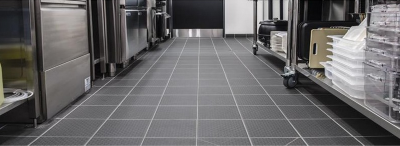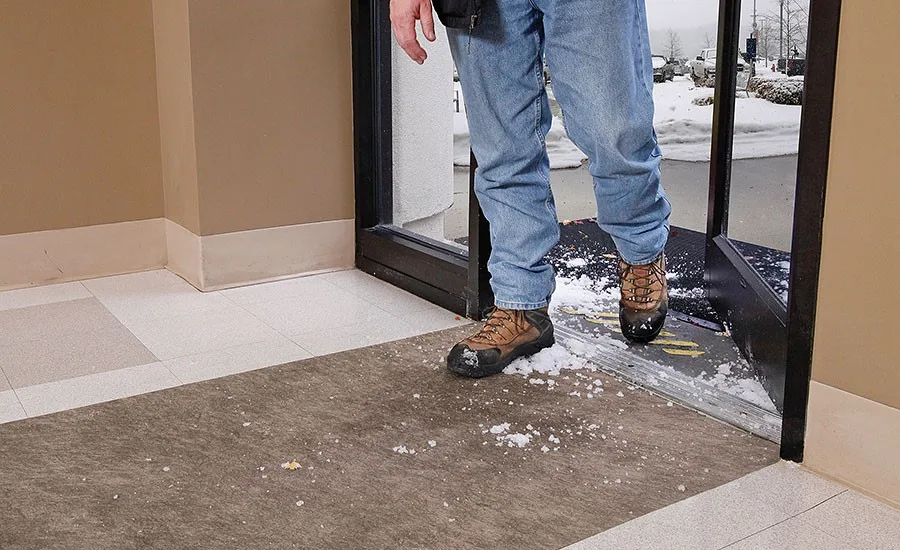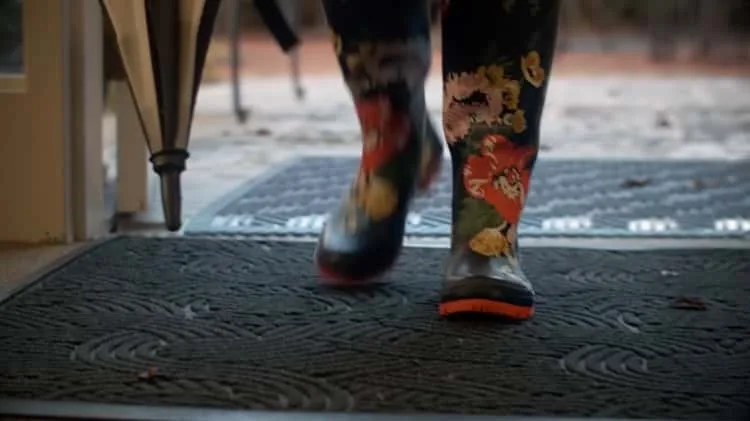How to Safeguard Your Commercial Floors in Wet and Messy Weather
Are rainy and messy conditions putting your commercial floors at risk? As the seasons change, it’s important to take proactive steps to protect your investment and maintain the longevity and appearance of your floors. Weather can take a toll on your floors, causing damage, slips, and accidents if not properly managed. Thankfully, there are preventive measures you can implement to minimize these risks. From selecting the right flooring materials and entrance mats to routine cleaning and maintenance practices, there are steps to keep your floors safe, functional, and visually appealing.
Protecting Your Floors
Commercial floors are subjected to heavy foot traffic, spills, and the impact of weather conditions. Wet and messy weather can pose significant risks to the integrity and safety of your floors. It’s crucial to protect your investment as damage to commercial floors can be expensive to repair or replace. Furthermore, it’s important to avoid accidents resulting from slippery floors. By implementing preventive measures, it’s possible to minimize these risks and ensure the longevity and functionality of your facility’s floors.
Different types of flooring materials are commonly used in commercial spaces, each with its own vulnerabilities to wet and messy weather. It’s important to understand the characteristics and weaknesses of your specific flooring type to effectively safeguard it.
Ceramic Tile: Ceramic tile is durable and resistant to water, but the grout lines between the tiles can be susceptible to water damage and staining. Proper sealing and regular maintenance are essential to protect the grout and maintain the appearance of ceramic tile floors.

Nonslip ceramic tile used in commercial kitchen
Vinyl Flooring: Vinyl flooring is a popular choice for commercial spaces due to its affordability and water resistance. However, excessive moisture can cause the adhesive to weaken, leading to curling or peeling. Preventive measures such as using moisture barriers and maintaining proper humidity levels are crucial for vinyl floors.
Carpet: Carpeted floors provide comfort and insulation, but they are highly prone to water damage and stains. In wet and messy weather, carpets can absorb moisture, leading to mold growth and unpleasant odors. Regular cleaning and the use of waterproof backing or carpet tiles can help protect carpeted floors.
Preparing for Wet and Messy Weather
Before wet and messy weather arrives, it’s essential to prepare your commercial floors to minimize potential damage. Here are some key steps to follow:
Create a Maintenance Plan: Develop a comprehensive maintenance plan that includes regular cleaning, inspections, and repairs. Schedule routine maintenance to ensure your floors are in optimal condition before the wet weather arrives.
Inspect for Existing Damage: Check for any existing damage or areas that may be prone to leaks or water penetration. Addressing these issues before the wet weather arrives can prevent further damage.
Improve Drainage Systems: Ensure that your commercial space has proper drainage systems in place to effectively manage water runoff. Clear any debris or blockages from drains and gutters to prevent water from pooling or overflowing.
Educate Staff and Visitors: Train your staff on the importance of maintaining a clean and dry environment. Encourage visitors to wipe their shoes on entrance mats and promptly report any spills or wet areas. This can minimize the risks of slips and falls.

Help eliminate wet areas by placing a mat at your entrance.
Choosing the Right Floor Mats and Entrance Matting Systems
Entrance matting systems play a crucial role in protecting your commercial floors from dirt, moisture, and debris brought in from outside. Here are some factors to consider when choosing floor mats:
- Select mats that cover the entire entrance area to effectively capture dirt and moisture. Consider placing additional mats at key transition areas within your space to prevent tracking.
- Look for mats made from absorbent and durable materials such as nylon or polypropylene. Opt for mats with a rubber or vinyl backing to prevent moisture from seeping through to the floor.
- Choose mats that are easy to clean and maintain.
Investing in high-quality floor mats and entrance matting systems is a cost-effective way to protect your floors and maintain a clean and safe environment.

Wet boots will be much safer walking on mats before stepping onto a slippery floor
Taking care of floors in wet weather is essential for long-term durability and safety. Continental Flooring’s representatives can guide you through product options for floors and mats that align with your specific needs. By taking preventive measures, such as selecting the right flooring materials, and using entrance matting systems, you can protect your floors from the challenges posed by wet and messy weather. Regular cleaning, maintenance, and inspections are key to identifying and addressing potential issues before they become costly problems. So, don’t let the weather dampen your floors’ shine—take proactive steps to protect your investment.
Continental Flooring provides the latest flooring and ceiling products, offering both materials and comprehensive flooring installation services. Government buyers can easily procure all types of flooring and ceiling systems on our GSA Schedule or national Cooperative Contracts. To see contract offerings available in your state, please visit our Contracts by State page. Whether you need product advice, samples, specification assistance, or to place an order, Continental Flooring simplifies the process with one call to meet all your requirements.
Please feel free to contact us for product advice, free samples, assistance in specifications, or to place an order. We welcome contract purchases, formal bids, RFQs or Open Market requirements. One call will do it all!
Contact Us Today!
Call Toll Free 800-825-1221 | Email: info@continentalflooring.com
Our Segments
- Federal, State, County, and Municipalities
- Healthcare
- Schools, Colleges, and Universities
- Public Housing Authority (PHA)
Continental Flooring has been servicing government agencies since 1979 and continues to be a top flooring and ceiling provider in the public sector.




